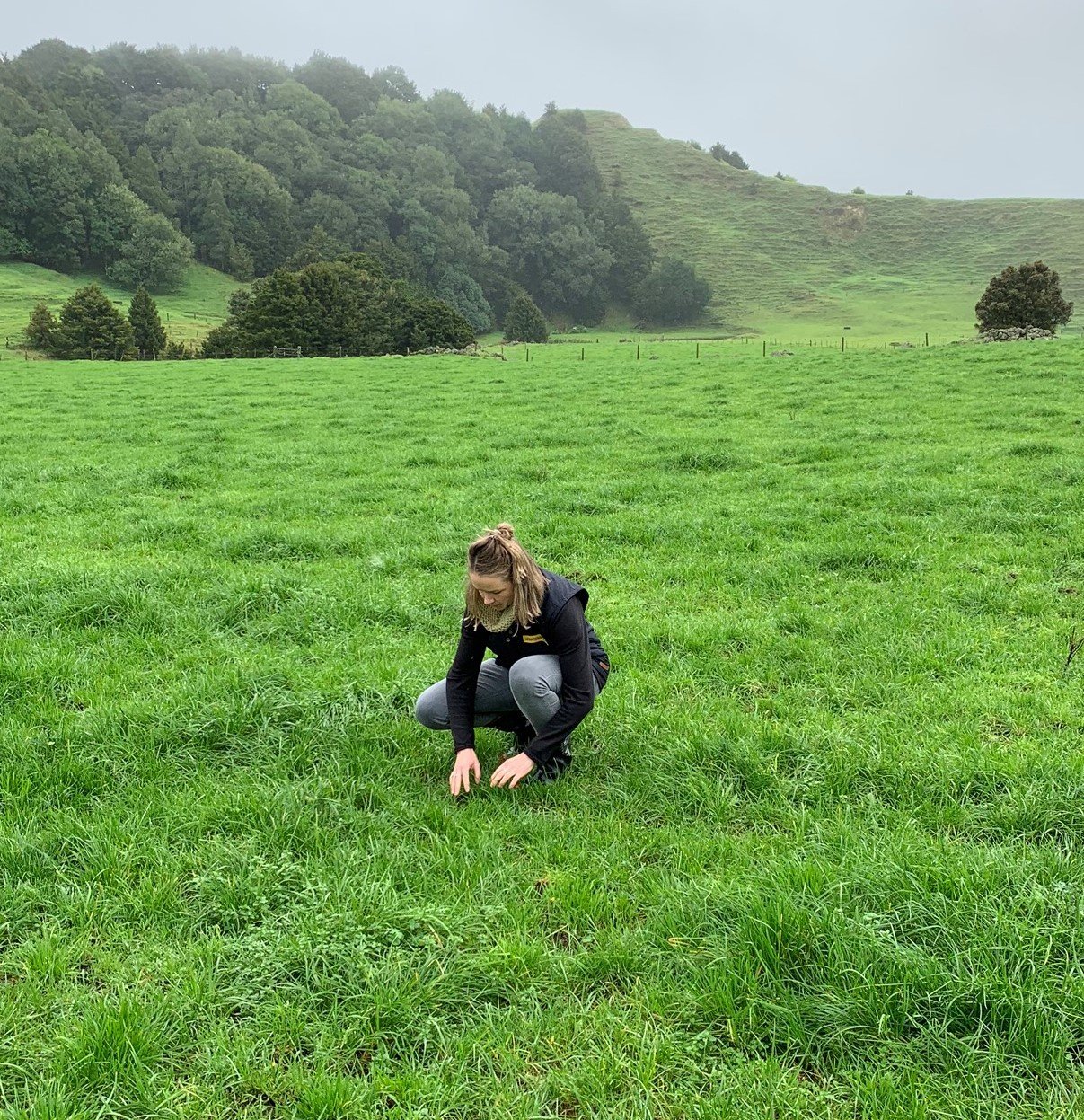Fast feed check will pay off
No matter how busy you are this month, there’s one job your future self will thank you for doing, if you can fit it in.
It doesn’t cost anything but time, and you can even do it when you’re picking up calves.
The job is this: Check the state of all your pastures. Take note of weeds, bare ground, low clover content, and poor ryegrass populations. Build a picture of how much DM you won’t grow this season after a dry summer/autumn, a wet winter, or both.
That’s the advice from Waikato agronomist Jen Corkran, Barenbrug.
“If you don’t check paddocks soon, the true extent of any loss of feed production may not become clear until spring growth doesn’t take off like usual.”
Some paddocks may be so full of weeds or thinned out they need to be fully renewed through spring-sown crop.
Others may still have good ryegrass, but little to no clover.
If the cause of this is not soil-related – e.g. soil compaction, nutrient deficiencies, over-grazing – oversowing clover seed in spring is a great way to improve productivity in these paddocks, Jen says.
Spin on coated Kotuku or Weka seed (4-5 kg/ha) either 1-3 days before, or 3 days after grazing. Kotuku is a high yielding, large leaved white clover with fast establishment. Weka is also high yielding, with medium leaves, high stolon density and excellent tolerance to clover root weevil.
Some paddocks may be weedy, thin or damaged to the extent they need under or oversowing. In summer wet and irrigated areas, ryegrass seed works very well in these situations – include clover seed if needed.
“In summer dry areas, where ryegrass isn’t the best choice, oversowing Captain plantain with clover can work very well.”
In all cases, she says, “you need to organise seed and contractors early, so you can start restoring your feed platform as soon as soils warm up and you can get on paddocks.
“If you leave it until you have a noticeable shortage of growth, weeds will take over and pastures will keep going backwards.”


